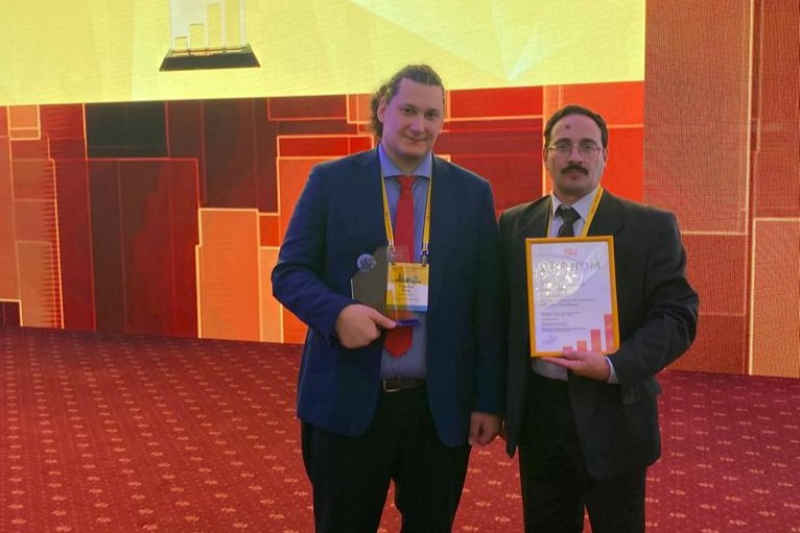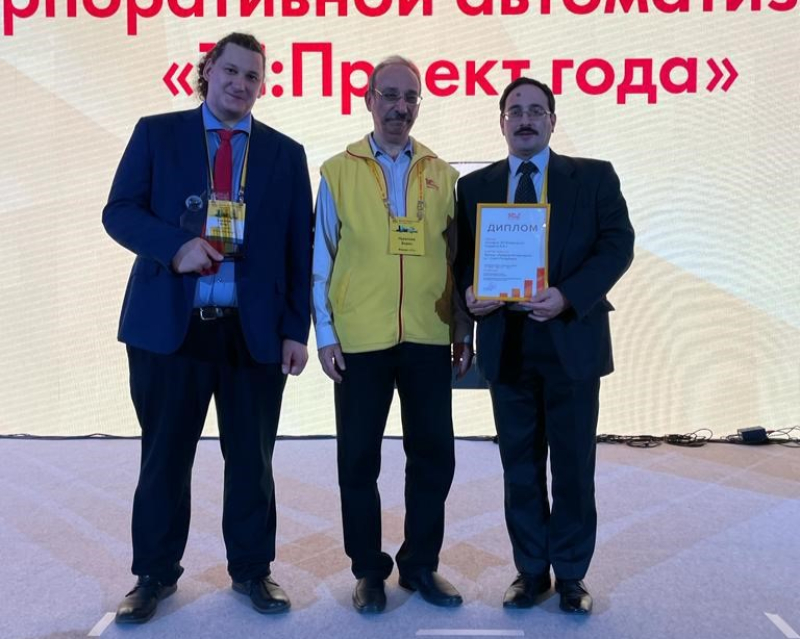It’s the sixth year in a row that 1C, a Russian developer of bookkeeping software, is running a competition of corporate automation projects based on their software platform. This year, the majority of the 217 competitors submitted projects developed for major Russian companies and corporations, such as Avito, Sberbank, Tatneft, Rostec, etc.
The team from ITMO was no exception, with their solution implemented at one of the biggest holding companies within Gazprom, namely, the St. Petersburg branch of Gazprom EP International Services. Their task was to transfer all HR-related paperwork into a digital form with digital signatures and develop the company’s own certification authority. The main objective was to not simply digitalize the document flow, but more importantly to develop a trusted digital environment for legally relevant interaction between all employees.
Another mandatory requirement for the suggested solution was its reliance on strictly Russian-produced software, which is why the project was based on an integrated solution that combined several 1C products, as well as used certified cryptographic protection methods developed by CryptoPro.
The team started developing the project in March 2021 during pandemic-related restrictions and following the passing of a federal law that launched an experimental digital workflow initiative. By August of that year, there was already a working prototype operating for all employees of the branch, with 95% of HR document flow occurring digitally.
According to Ilya Livshitz, more often than not, it’s the company’s own employees that become the main hindrance to implementing digital document flow. Moreover, this field is still quite innovative, which is why not many companies (especially outside IT) are ready to take on the challenge of implementing e-document management systems on their own.

Egor Sokolov (left) and Ilya Livshitz (right) at the 1C contest. Photo courtesy of the subjects
“Judging by what I’ve come to hear from representatives of various companies at conferences, not many of them have even established their own regulations for digital document flow. It’s also often the case that heads of companies do not really understand what this e-document flow actually looks like. It’s a new and unique technology, and we are happy to be among the first teams to have successfully implemented it at a high TRL,” concludes Ilya Livshitz.
Now, the team is planning to scale their solution and start working on a secure e-document flow competence center at the Faculty of Secure Information Technologies. Egor Sokolov adds that currently there is also an idea for the launch of a specialized lab that will conduct the full range of studies to develop a knowledge base for technologically neutral document flow that will comply with the requirements of national digital sovereignty.





